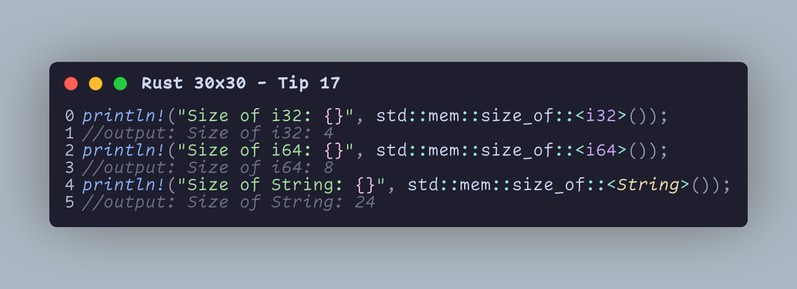#Rustlang Tip: Use the #[non_exhaustive] attribute for future-proofing your enums and structs.
This allows you to add new variants later without breaking existing code.
Sidenote: The #[non_exhaustive] attribute forces people to have a _ pattern in their matches that will match any new items you add later.


